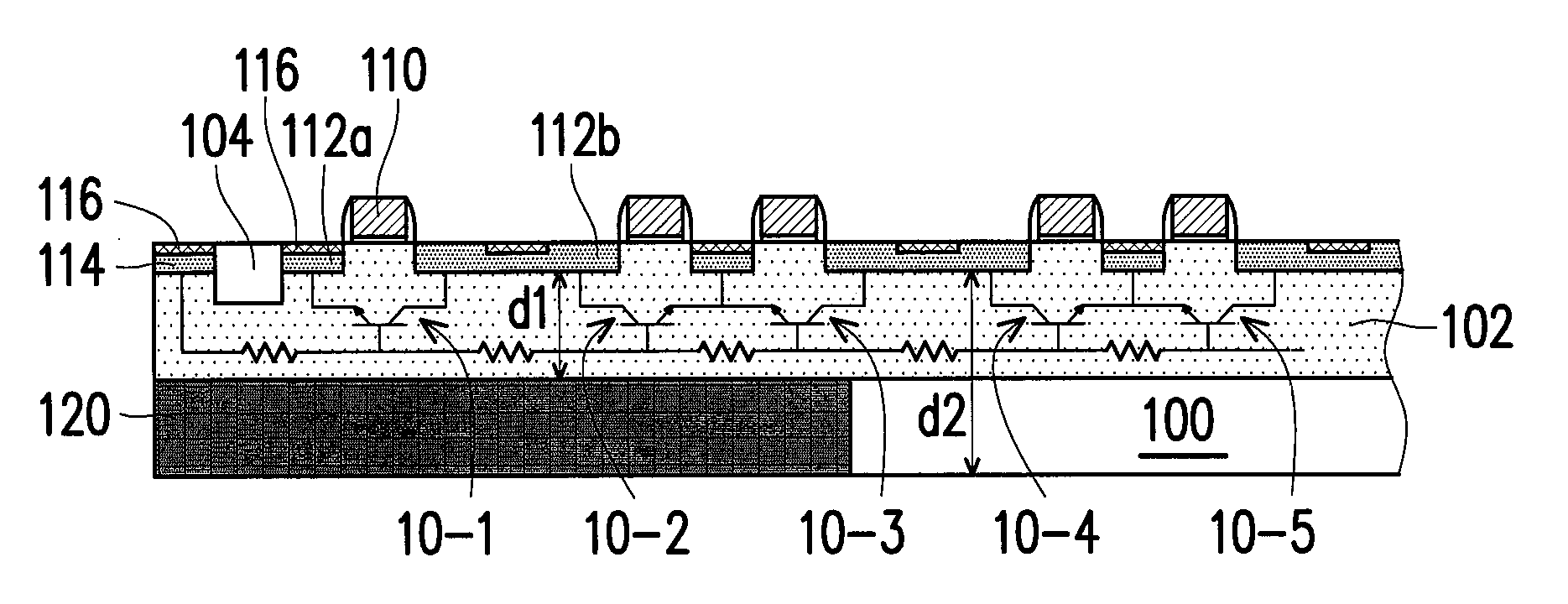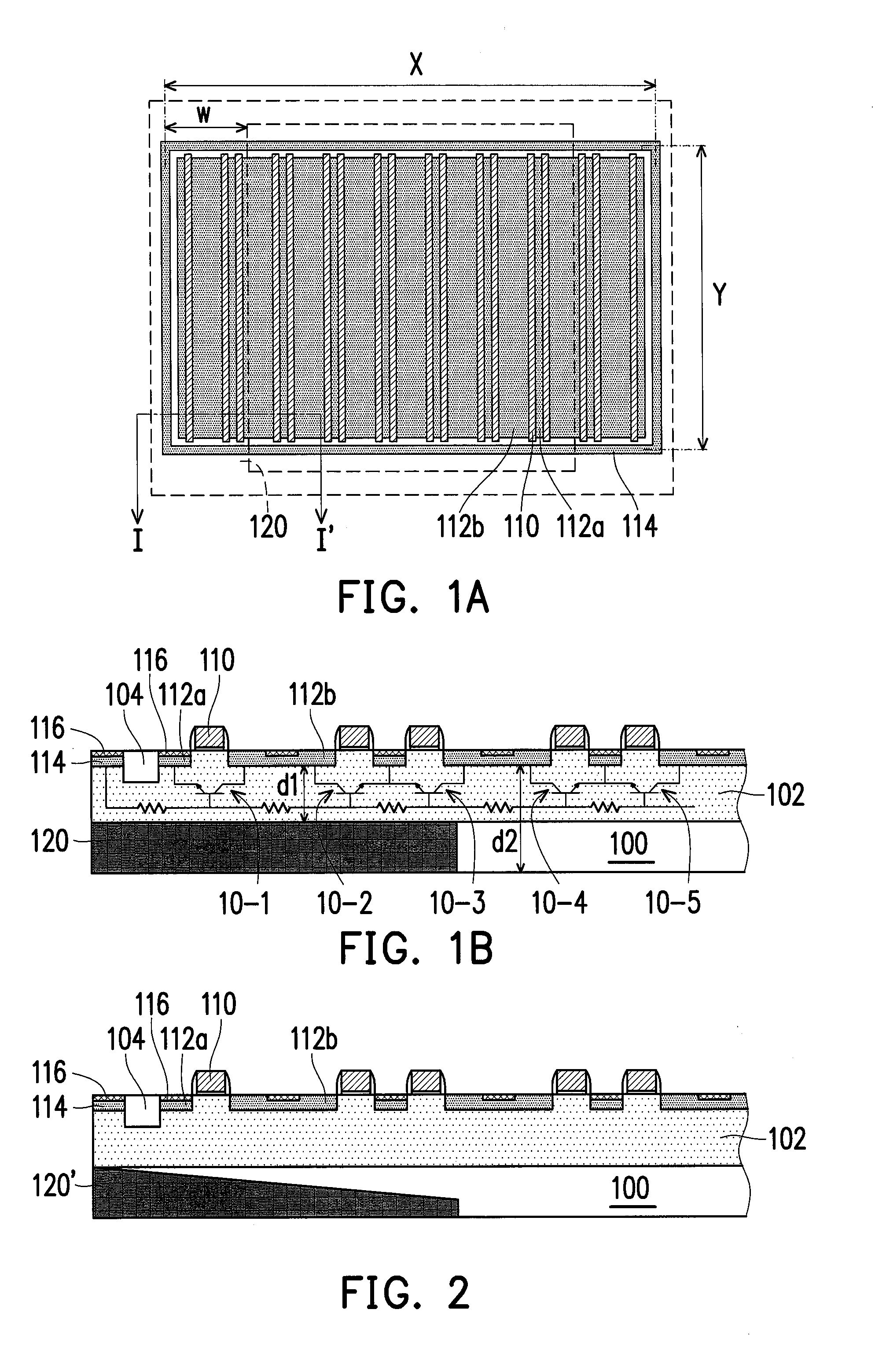Semiconductor device
- Summary
- Abstract
- Description
- Claims
- Application Information
AI Technical Summary
Benefits of technology
Problems solved by technology
Method used
Image
Examples
Embodiment Construction
[0016]The following embodiments are intended to further explain this invention but not to limit the scope thereof For example, though the semiconductor device described in the embodiments is a multi-finger MOS device for ESD, the semiconductor device of this invention may alternatively be a FinFET device. Moreover, although the first and second MOS elements are NMOS elements in the embodiments, they may alternatively be BJT elements, LDMOS (Laterally Diffused MOS) elements, or DDMOS (Double Diffused MOS) elements.
[0017]Further, though the first conductivity type is N-type and the second conductivity type is P-type in the embodiments, it is also possible that the first conductivity type is P-type and the second conductivity type is N-type.
[0018]FIGS. 1A and 1B respectively illustrate a top view and an I-I′ cross-sectional view of a semiconductor device according to an embodiment of this invention.
[0019]Referring to FIGS. 1A and 1B, the semiconductor device includes a multi-finger MOS...
PUM
 Login to View More
Login to View More Abstract
Description
Claims
Application Information
 Login to View More
Login to View More - R&D
- Intellectual Property
- Life Sciences
- Materials
- Tech Scout
- Unparalleled Data Quality
- Higher Quality Content
- 60% Fewer Hallucinations
Browse by: Latest US Patents, China's latest patents, Technical Efficacy Thesaurus, Application Domain, Technology Topic, Popular Technical Reports.
© 2025 PatSnap. All rights reserved.Legal|Privacy policy|Modern Slavery Act Transparency Statement|Sitemap|About US| Contact US: help@patsnap.com



